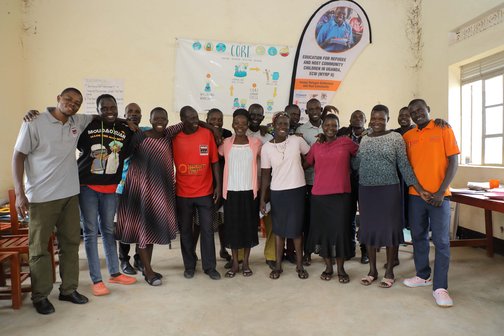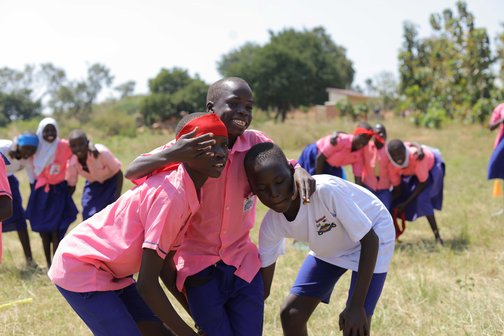How EASE is providing Sudanese refugee families in Uganda with tools to process emotions
Sept. 18, 2025
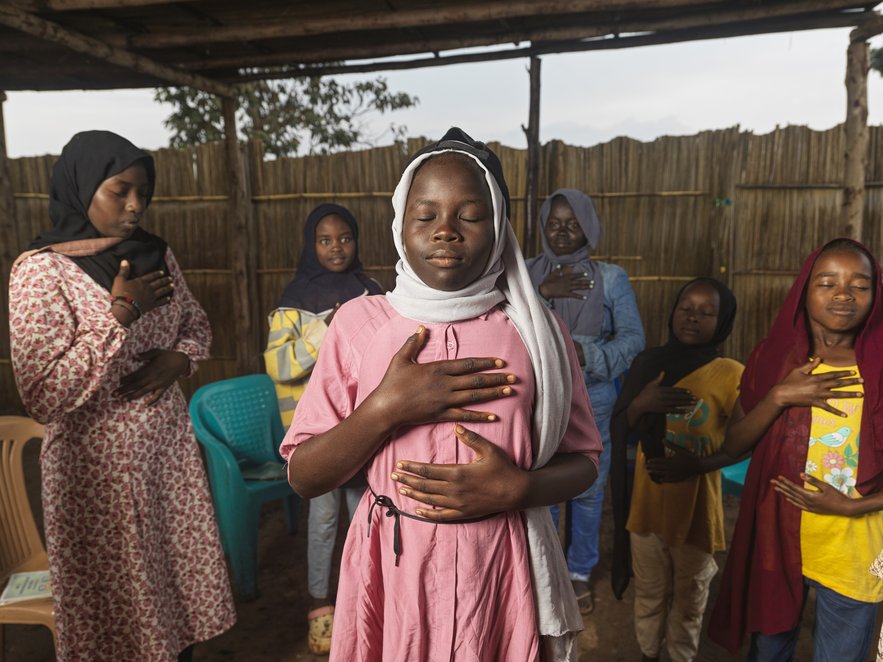
The conflict in Sudan has forced tens of thousands of people to flee across the border to Uganda seeking safety and refuge. It’s estimated that 88,000 people have arrived in Uganda since the start of 2025, many after a gruelling journey and with only the clothes on their backs.
The psychological impact of these experiences can be severe. That’s why in the Kiryandongo Refugee Settlement in Western Uganda; War Child and our partners Uganda Refugee and Disaster Management (URDMC) are providing children and caregivers with access to EASE group psychological sessions to teach them how to understand their emotions and manage their stress.
EASE stands for Early Adolescent Skills for Emotions. It was developed by the World Health Organisation (WHO) with input from expert organisations, including War Child. EASE was created to bridge the mental health treatment gap for young people in low-income countries by enabling non-specialists to provide mental health treatment.
EASE sessions are part of a broader project in Uganda called Sustainable Transition to Emergency and Protection Services in Uganda (STEPS), funded by the European Union.
EASE participants' experiences in their own words
Hear from children and caregiver participants in the Kiryandongo Refugee Settlement about how EASE has improved their relationships with their families, friends and peers:
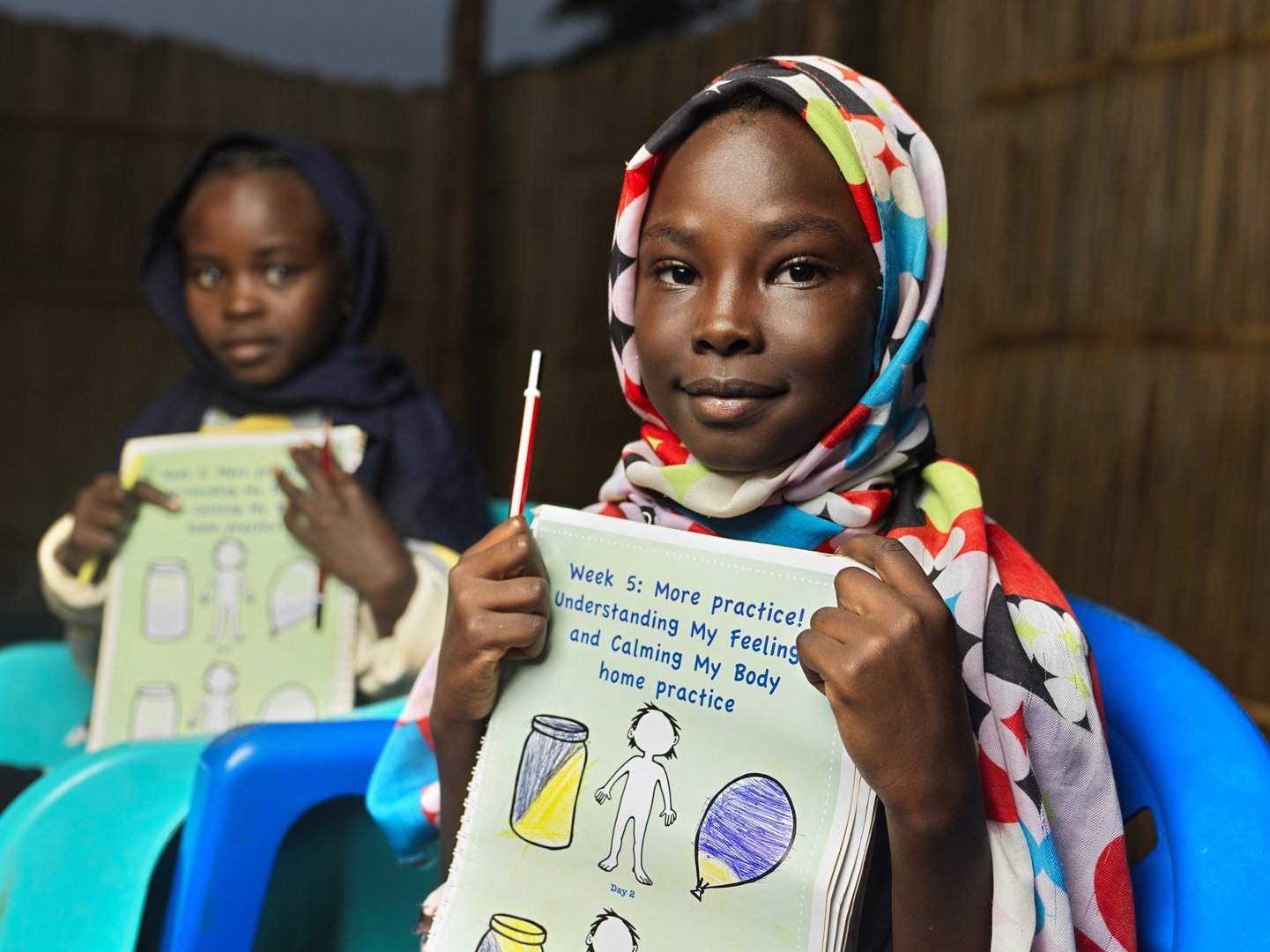
Ayat (11)
“My mother used to work alone at home, and I would just sit back and look at her. From the EASE sessions, I was able to learn the importance of helping our parents and this has helped to make my relationship with my mother stronger. She is now always happy with me and supports me whenever I am facing challenges.”
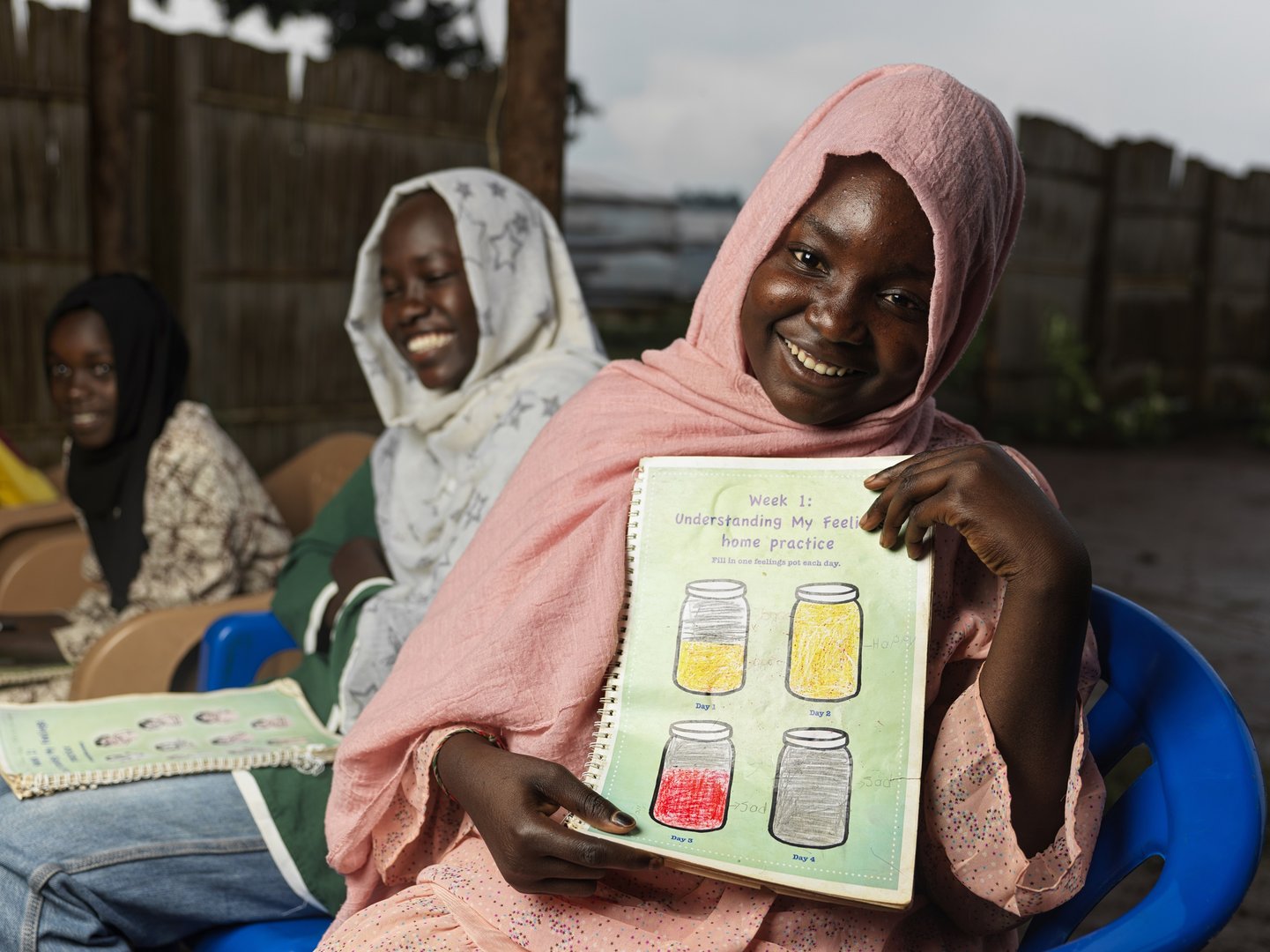
Adan (14)
“The facilitator referred me for EASE sessions and it really helped me overcome my problem. Through the 'stop think and go' technique, I looked at my problems and thought of the best solution. I decided to open up to my teacher and she talked to the girl and she was able to stop bullying me.”
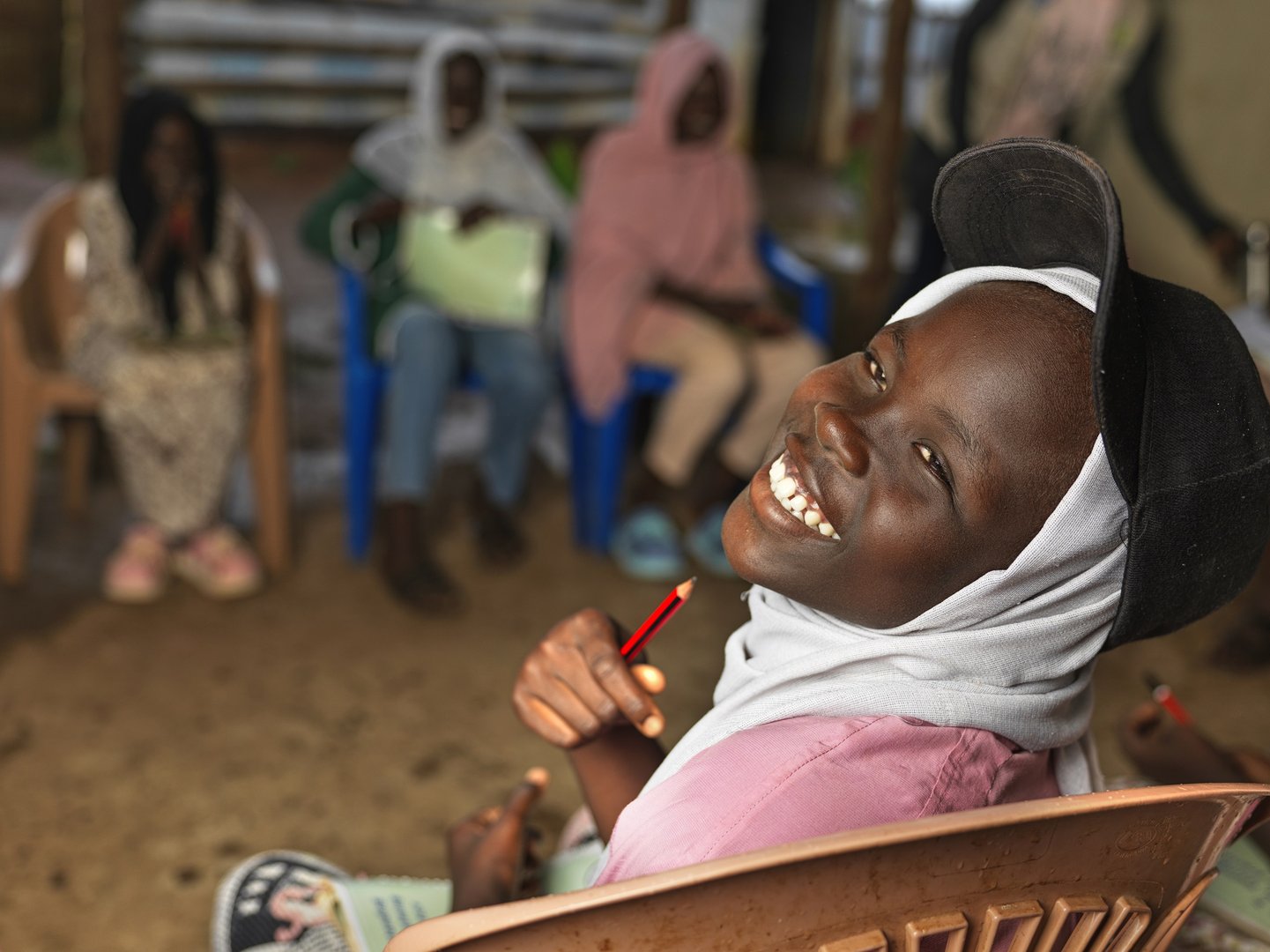
Ethar (13)
"I would like to thank URDMC, War Child Alliance and ECHO for the support they have given and request that this programme continues.”
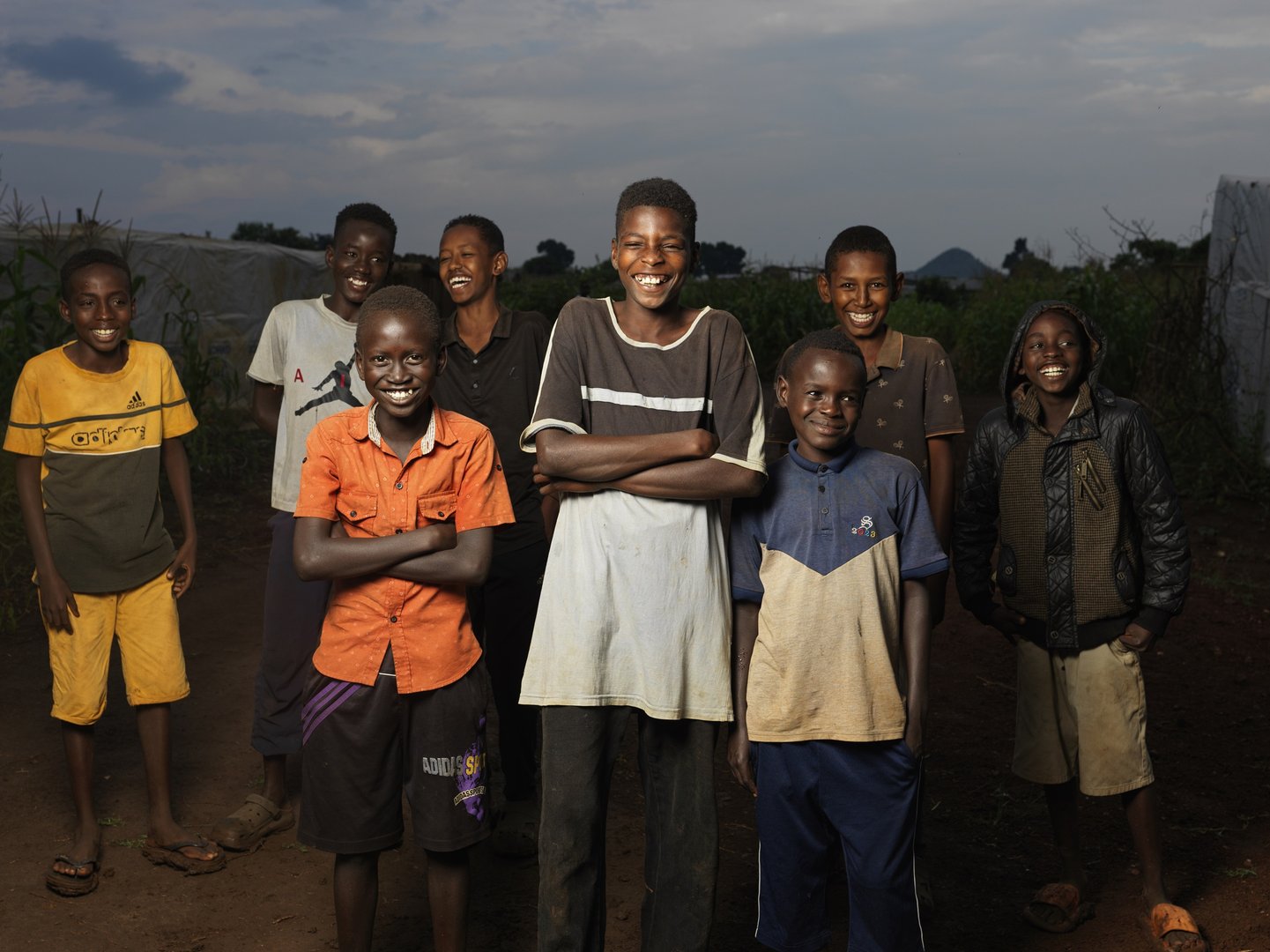
Azam (15) pictured in centre
“EASE has helped me understand my feelings like sadness, anger and happiness, and how I control them when faced with different situations in my life. These days I feel free and better and like helping other people who need me.
"I encourage all children to stay together, not fight and always remain friends because we are the future.”
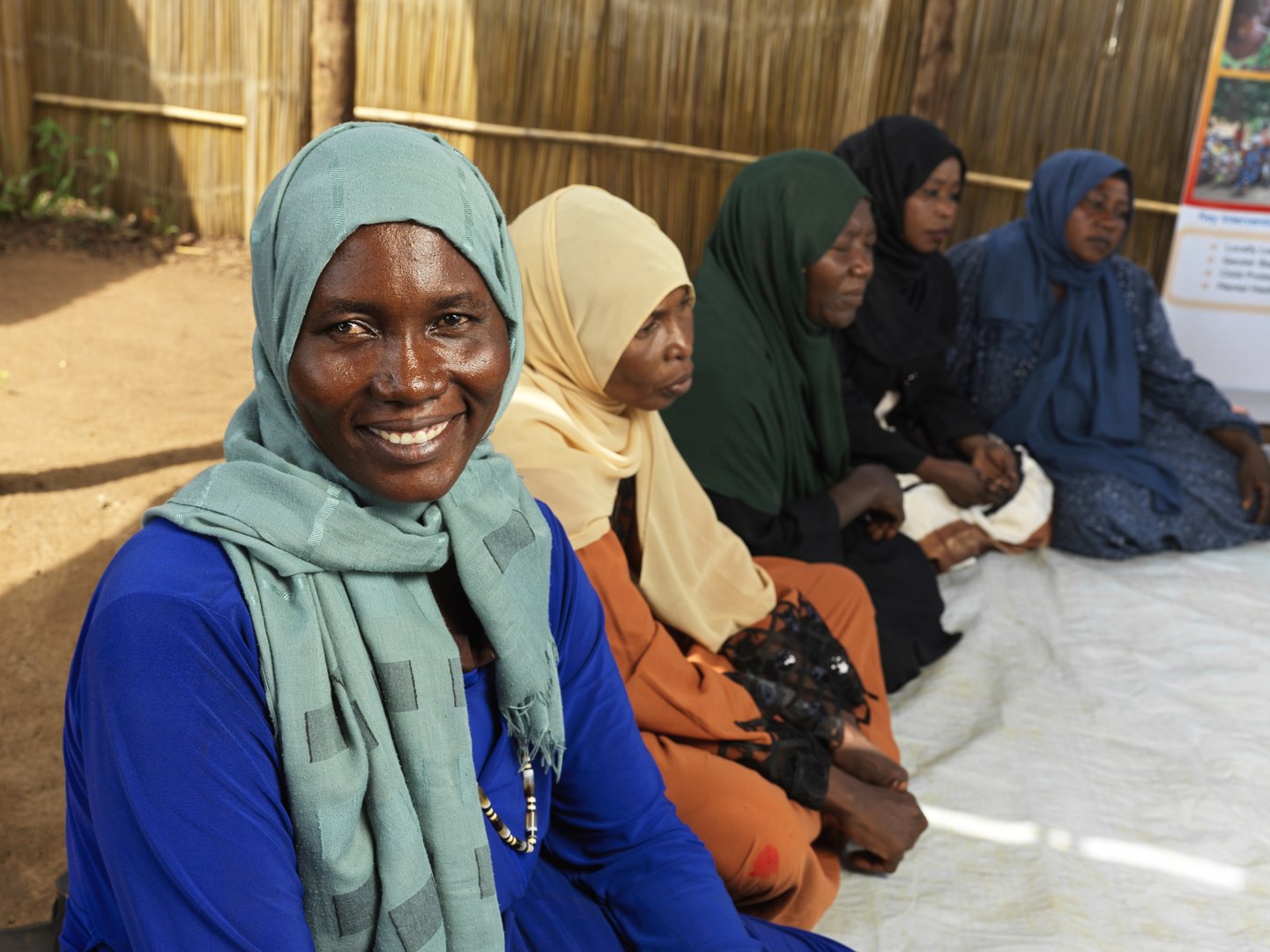
Aisha - caregiver
“The EASE intervention is very good and is creating good relationships between the parents and their children. My only wish is that it can reach more children and families.”
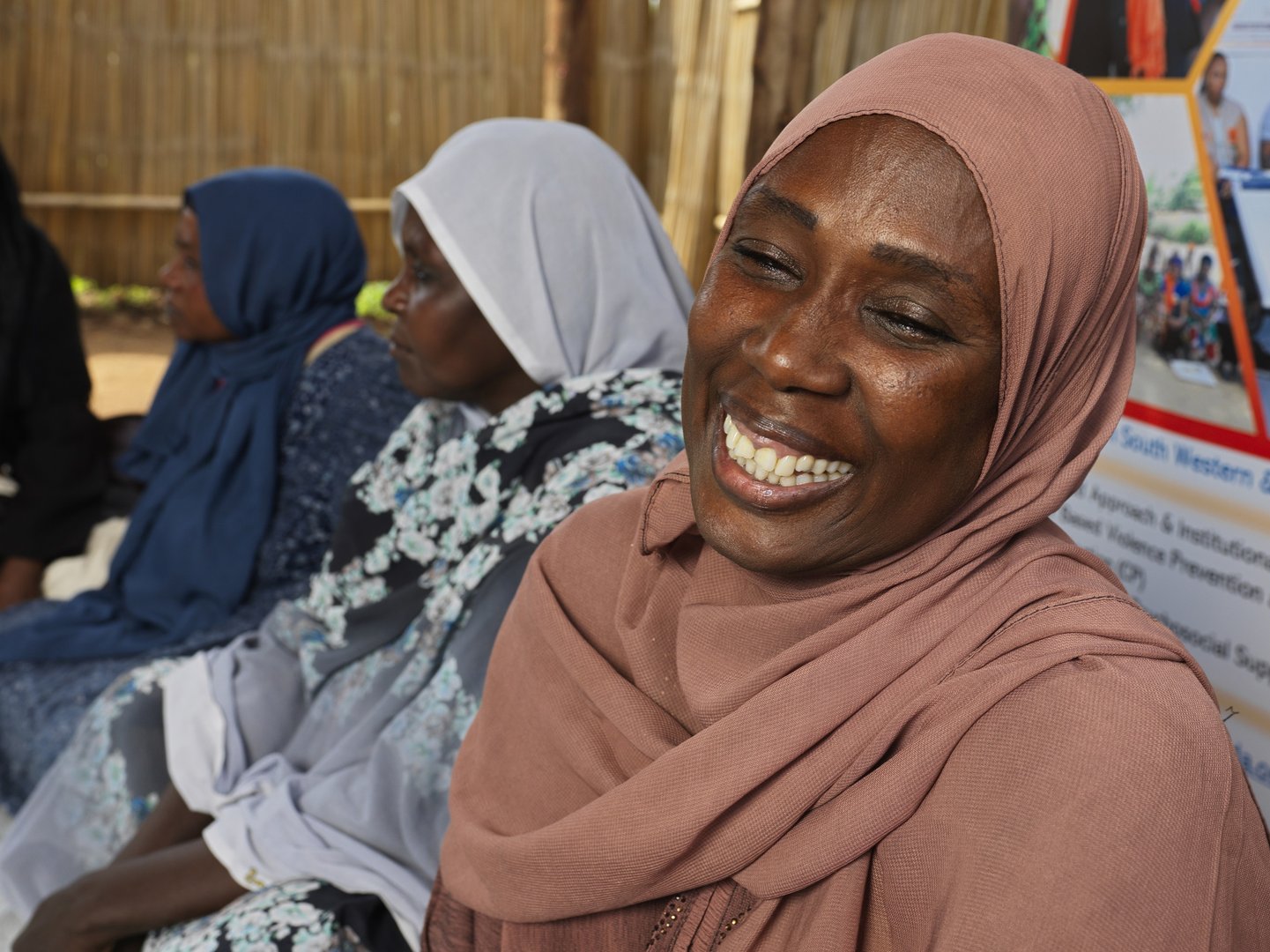
Zahaib - caregiver
"Through the active listening, power of praise lessons from EASE, I have learnt how to relate with my children and this has strengthened my relationship with them and there is respect within the family which was not there before."
“I encourage War Child Alliance and URDMC to take this intervention to more participants, especially the new arrivals.”
